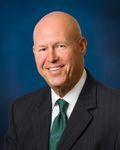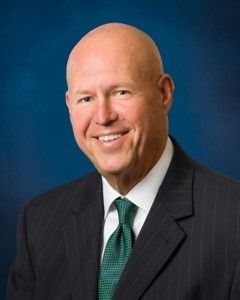The future of health coaching is, in a word, bright. Grab your sunglasses and keep reading.
In 2017, ACE’s President and Chief Science Officer, Cedric X. Bryant, Ph.D., FACSM, envisioned a future for health coaches that would grow beyond the usual singular practitioner path, saying, “I think you’re going to see growing acceptance of behavior-change interventionists (i.e., health coaches) as part of the healthcare team.” The idea of taking a team approach to working with clients is transforming, based on efficacy evidence, into intentionally designed integrative, multidisciplinary teams. People are fully integrated beings; the body affects the mind, which in turn affects the body. We are whole people in need of whole solutions, which are best delivered by whole teams.
As the paradigm of healthcare’s response to chronic diseases continues to shift, a door is swinging wide open for health coaches to gain opportunities to integrate into wellness teams. The meteoric rise of telehealth, as reported by the Department of Health and Human Services, is accelerating opportunities for health coaching to be delivered remotely/virtually and increasing current and future opportunities to join multidisciplinary teams.
Why is the meteoric rise of telehealth and developing shift toward multidisciplinary teams so important to the future of health coaching? Primarily, the future informs the present and provides insight into skills and concepts on which health coaches must focus to walk through the open door into their bright future. For example, understanding the biopsychosocial model and how it emphasizes the interrelated biological, psychological and social components as a guide to distinguishing this broader view of well-being from the biomedical model. Additionally, being skilled in evidenced-based approaches to facilitate behavior change, such as motivational interviewing, qualifies health coaches to be a part of the bright future of opportunities.
Health coaches and those seeking certification stand at a unique point in history where previous barriers, such as geographic proximity to clients, resistance to virtual technology and inclusion by healthcare providers is melting away. With peer-reviewed journals publishing supportive research, health and wellness coaching delivered through digital means is becoming more important as more healthcare shifts online.
In one random controlled clinical trial, initial findings suggest that health and wellness coaching through videoconferencing may be as effective for promoting weight loss as in-person health and wellness coaching. A systematic review of 13 studies indicates that health coaching produces positive effects on patients’ physiological, behavioral and psychological conditions and on their social life. In particular, statistically significant results revealed better weight management, increased physical activity and improved physical and mental health status.
Several insurance companies, such as UnitedHealth Group, Aetna and Blue Cross Blue Shield, now provide health coaching to their clients. Amy Meister, chief executive of UnitedHealth Group’s Level2 digital platform, which supports members with Type 2 diabetes, is a strong advocate of health coaching. Meister, who is a physician, told The Washington Post, “Doctors aren’t trained in motivational interviewing. Health coaches are. Coaches introduce a new level of expertise into the health-care system, and they work closely with our clinical team.”
In the same article, Matthew Clark, a clinical health psychologist at the Mayo Clinic, said, “A physician can provide medical clearance and provide guidelines for physical activity. A registered dietitian can help you develop an individualized nutrition plan, and a health and wellness coach can help you follow your healthy-living plan. Health and wellness coaches are trained in empathy, motivational interviewing and behavioral counseling skills, and can help individuals set realistic goals.” Notice how central motivational interviewing is across these three domains: insurance, digital health and healthcare system. A health coach’s ability to share an understanding and approach (e.g., biopsychosocial model, motivational interviewing) to chronic disease management and health will be a key to unlocking the future.
Regardless of how you envision your health-coaching future—as part of a health club team, digital health company, regional hospital, healthcare insurance provider, corporate wellness or private practice—group coaching is an emerging area of focus. The American Journal of Lifestyle Medicine, for example, identified group coaching as an emerging trend that's gaining more attention as a cost-effective alternative to one-on-one coaching.
The economics of group coaching, not unlike small-group fitness training, is a win-win for everyone, as it is more affordable to participants and more profitable to the coach. Generally, a “good” size is approximately four to eight participants; if you are new to coaching groups, you may want to think about six as your maximum. The “how” of group coaching is significantly different than one-on-one health coaching. Here are two ideas to set you up for success: First, organize your group practice by type, either an affinity-based group (participants have similar backgrounds and many of the same challenges, such as students) or as an agenda-based group (participants may be of diverse backgrounds but are seeking to accomplish the same goal, such as running a marathon or weight-loss.)
Second, create an environment and coach in a manner that results in the participants relating to the topic and the energy that comes up for them personally rather than commenting and speaking directly about other participants’ comments. Lastly, group coaching is easily transferable to virtual delivery, which is especially beneficial as a time-saver and during our current times of social distancing practices in the ongoing challenges associated with COVID-19.
Even as we see the vision cast by Dr. Bryant coming quickly into focus as the disruptive force of 2020 accelerates opportunities for health coaches, the most important factor in shaping what the future of health coaching will look like is, very simply, you. Will you view your future as a matter of chance or as a matter of choice? And what actions will you take to prepare and propel yourself into your bright future?




 by
by 





